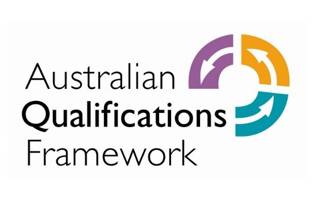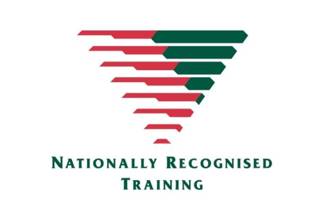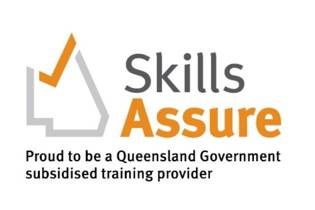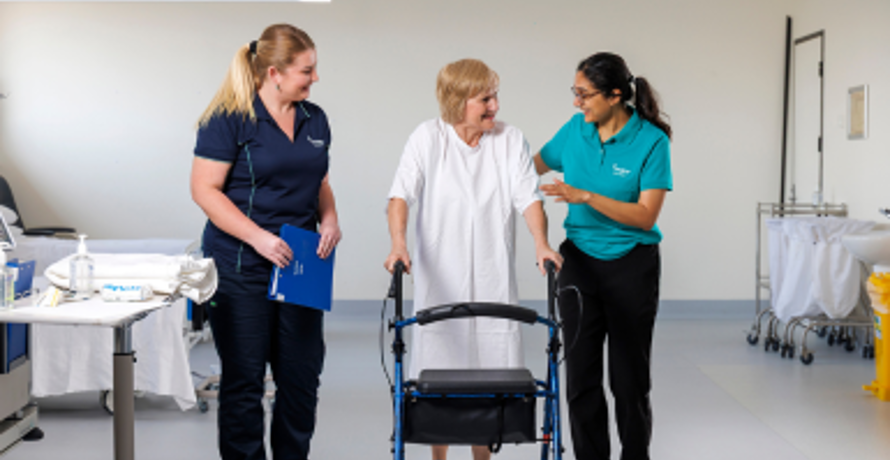Diploma of Nursing
HLT54121
 Enrol in Free Nursing
Enrol in Free Nursing
Mater Education is an approved provider of the Queensland Government's fully funded Free Nursing incentive in 2026.
Study a fully funded Diploma of Nursing at:
- Mater Hospital Brisbane
- Mater Health Hub, Springfield
- Mater Private Hospital Townsville
Free Nursing places are limited and conditions and criteria apply. Please speak with us to find out more.
About our Diploma of Nursing
Our full time, hands-on, hospital-based program provides contemporary theoretical knowledge and best-practice clinical skills. A blended delivery approach, it incorporates face-to-face, online and self-directed learning, offering flexibility to balance study with work and other commitments.
Undertake 400 hours of work placement across Mater’s exceptional hospitals, healthcare services and partner facilities including aged care and community care, organised for you by our dedicated placement team, who are there to support you every step of the way.
Our highly qualified educators and clinical facilitators will prepare you for life as a nurse in the real world, with the skills, knowledge and confidence you need to step straight onto the ward. You will join our alumni of like-minded nurses and be able to access exceptional networking opportunities to help you build a rewarding professional career.
On successful completion of the program, you will be able to apply for National Registration and a licence to practice as an enrolled nurse.
Hear from our students
Course information
-
To be accepted into Mater Education's Diploma of Nursing program, applicants must:
- be a minimum of 18 years of age or older upon completion of the qualification (students entering into an 18 month full-time qualification must be 16 years and 6 months old on day one of the course)
- by the beginning of term two, semester one, hold a HLTAID009 Provide Cardiopulmonary Resuscitation certificate and to be current for the duration of enrolment in the program
- be eligible to obtain a Blue Card if required
- apply for a NDIS Worker Screening Check on commencement
- obtain criminal history checks at the start of term two, semester one
- demonstrate a high level of literacy and numeracy skills at or above Exit Level 3 of the Australian Core Skills Framework (ACSF) using the approved Safe Work Resources VFH LLN Assessment Tool
- understand and meet the Inherent Requirements outlining the behaviours, capabilities, knowledge and skills required to successfully complete the program
- demonstrate digital literacy skills including have access to and be proficient in the use of a laptop or portable device with internet access. To ensure access to Mater Education's virtual learning environment, this device should have a camera and up-to-date software, including Microsoft Office, Adobe Acrobat Reader, and Adobe Flash Player. Check your digital literacy skills before applying.
Immunisation
Provide the required immunisation and vaccination evidence by the census date (during week 5 of the program) in order to be eligible to commence placement:
- Hepatitis B
- Varicella (chicken pox)
- MMR (measles, mumps and rubella)
- Pertussis (whooping cough)
- Seasonal or industry vaccinations (influenza) as required
- COVID-19 - While Mater Education strongly recommends that all students are vaccinated, it is not a requirement to be vaccinated against COVID-19 to enrol, study and undergo placement at any Mater facility. However, Diploma of Nursing students are required to undergo practical placement at an aged care facility during semester one. As many external aged care providers require their entire workforce to be vaccinated against COVID-19, students will need to be vaccinated to complete their placement and gain their qualification.
If you need to update your vaccinations or obtain a record of your immunisation history, see your GP. A blood test may be required to confirm your immunisation status. Students will be responsible for any costs associated with obtaining vaccinations.
English language standards
To register with the Australian Health Practitioner Regulation Agency (AHPRA) as an Enrolled Nurse, you must meet the Nursing and Midwifery Board of Australia (NMBA)'s English language skills registration standard requirements at the time of your application. Mater Education will only enrol students into the Diploma of Nursing program who meet the NMBA’s English Language Standards via one of the pathways listed below.
Primary language pathway
English is your primary language, and you provide evidence that you have attended and satisfactorily completed at least six years of primary and secondary education taught and assessed solely in English in a recognised country, including at least two years between years 7 and 12.
Recognised countries Antigua and BarbudaBermudaGibralterJerseySt LuciaAnguillaBritish Indian Ocean TerritoryGrenadaMaltaSt Vincent and the GrenadinesAustraliaCanadaGuernseyNew ZealandTrinidad and TobagoThe BahamasCayman IslandsGuyanaRepublic of IrelandUnited KingdomBarbadosDominicaIsle of ManSaint Helena, Ascension and Tristan da CunhaUnited States of AmericaBelizeFalkland IslandsJamaicaSt Kitts and NevisUS Virgin Islands
Test pathwayWhere English is not your primary language you will need to provide evidence of your English Language Proficiency Test.
Requirements
Test
Overall score needed
Component scores needed
Test results accepted from one test sitting, or a maximum of two test sittings in a 12-month period only if:
Cambridge
(C1 Advanced or C2 Proficiency, paper and computer at test centre only)Minimum score of 185Minimum overall score of 185 in each of the three components:- listening
- reading
- speaking
and minimum score of 176 in the one component of writing.
- you are tested in all four components in each sitting
- you achieve a minimum score of 185 in each component for listening, reading and speaking and a minimum score of 176 for writing across the two sittings, and
- when using two test sittings no score in any component of the test(s) for either test sitting is below 176.
IELTS
(Academic- paper and computer at test centre only)Overall score of 7Minimum score of 7 in each of the three components:- listening
- reading
- speaking
and minimum score of 6.5 in the one component writing
- you achieve a minimum overall score of 7 in each sitting, and
- you achieve a minimum score of 7 in each component for listening, reading and speaking and a minimum score of 6.5 for writing across the two sittings, and
- when using two test sittings no score in any component of the test(s) for either test sitting is below 6.5.
OET
(on paper or computer-based in testing centre, any profession specific OET test can be accepted)N/AMinimum score of B in each of the three components:- listening
- reading
- speaking
and minimum score of C+ in the one component writing.
- you are tested in all four components in each sitting, and
- you achieve a minimum score of B in each component for listening, reading and speaking and a minimum score of C+ for writing across the two sittings, and
- when using two test sittings no score in any component of the test(s) for either test sitting is below C+.
PTE Academic
(computer at test centre only)Minimum overall score of 66Minimum score of 66 in each of the three communicative skills:- listening
- reading
- speaking
and minimum score of 56 in one communicative skill writing.
- a minimum overall score of 66 is achieved in each sitting, and
- you achieve a minimum score of 66 in each of the communicative skills of listening, reading and speaking and a minimum score of 56 in writing across the two sittings, and
- when using two test sittings no score in any of the communicative skills for either test sitting is below 56.
TOEFL iBT
(computer at test centre only)Minimum total score of 94- 24 for listening
- 24 for reading
- 24 for writing, and
- 23 for speaking
- a minimum total score of 94 is achieved in each sitting, and
- you achieve a minimum score of 24 for listening, 24 for reading, 24 for writing and 23 for speaking across the two sittings, and
- when using two test sittings no score in any of the test sitting sections is below:
- 20 for listening
- 19 for reading
- 24 for writing, and
- 20 for speaking.
AHPRA may also ask you to provide evidence of how you meet the English language skills requirements in support of your Enrolled Nurse registration application.If you have any questions about enrolled nurse registration, or would like more information, use AHPRA's Online Enquiry Form or call them on 1300 419 495.
-
Mater Education wants everyone enrolled in the program to have the best opportunity to succeed at their study. Our dynamic program is delivered in a way that caters to all learning styles, and our selection process is designed to set our students up for success.
Before applying, please ensure you have thoroughly read and understood the entry requirements in the previous tab. Mater Education will only enrol students who meet these.
1. Apply online
To apply, you will need to complete an online application form, highlighting:
- What has inspired you to choose nursing as a career, and why is now the right time for you to begin this journey?
- What interests you about studying with Mater Education, and how do you see this program supporting your career goals?
- The Diploma of Nursing is a full-time commitment over 18 months. What strategies will you use to balance study, work, and personal responsibilities during this time?
- Nursing can be both rewarding and challenging. What personal qualities, values, or strengths do you believe will help you succeed in your studies and future career?
2. Demonstrate competence in Language, Literacy, Numeracy and Digital Literacy Skills (LLND)
- Applicants must complete the Safe Work Resources VFH LLN Assessment Tool and attain a competence at or above Exit Level 3 of the Australian Core Skills Framework (ACSF) is required for both reading and numeracy as well as achieving an equivalent working level of digital literacy skills.
Applicants will be advised as soon as practicable after assessment of the outcome of their test and that information will be provided to the Secretary, Department of Employment and Workplace Relations in the form, manner and by the time requested by the Secretary.
3. Attend an online conversation
Nurses need to meet the inherent requirements of the Diploma of Nursing program which requires certain qualities and attributes to be met.
Inherent requirements also include essential components of the course that demonstrate the abilities, knowledge and skills to achieve the core learning outcomes while preserving the academic integrity of Mater Education’s learning, assessment and accreditation processes.
The online conversation allows us to provide advice, more information and answer any questions about your suitability for the program.
Mater Education ensures all potential students are treated fairly and equally in this process.
If you are offered a place in the Diploma of Nursing program, you agree that;
- you will meet immunisation/vaccination requirements.
- provide the required immunisation and vaccination evidence by the census date (during week 5 of the program).
- you will obtain an acceptable criminal history check at the start of term two, semester one.
- you are eligible for a Blue Card (Working with Children Check).
- If you believe you will be disqualified from receiving a Blue Card (Working with Children Check) please discuss with us prior to enrolment as this may impact your workplace placement allocation. Note: it is an offence for a disqualified person to sign a Blue Card application.
- you will apply for a NDIS Worker Screening Check on commencement. You will be considered a volunteer for the purposes of a NDIS clearance. Mater Education will need to verify your application as a student.
- you ensure your preparedness for placement i.e. have completed all pre-placement requirements including theoretical and practical assessments. Note: Absenteeism and/or non-submission may directly impact course progression in the program.
All students enrolled in an approved nursing course of study must be registered with AHPRA for the duration of study or until they are no longer enrolled. Mater Education will register enrolled students with AHPRA and then advise them when the student is no longer studying.
Successful completion of Mater Education's Diploma of Nursing program does not guarantee registration as an Enrolled Nurse with AHPRA. Graduates must also meet AHPRA's Enrolled Nurse Registration Standards.
On successful completion of the program, you will need to consider AHPRAs requirements before you apply for registration as an Enrolled Nurse:
- Application for general registration as a nurse or midwife for students completing an approved program of study: ASGR-40
- Supporting Documentation for Graduate Applications
- AHPRA's Criminal History Standard
- NMBA's English Language Skills Registration Standard
If you have any questions about enrolled nurse registration, or would like more information, use AHPRA's Online Enquiry Form or call them on 1300 419 495.
Transitioning students
We understand how a change in circumstances can mean looking for other ways to complete your studies.
If you’ve previously been enrolled in a Diploma of Nursing program at another Registered Training Organisation, and wish to transition into Mater Education's program, please contact us on 1300 070 350.
In addition to the selection and application process outlined above, you’ll also need to submit:
- an academic transcript from your current/previous provider showing your completed units of competency
- evidence of workplace experience placement.
If you don’t have your academic transcript yet, you’ll need to provide that evidence before your enrolment can be accepted.
Not all Diploma of Nursing programs are delivered the same way. We will review your documentation to determine your eligibility for entry into our program. You may be asked to undertake some gap training, which may attract additional fees.
-
Funding arrangement Cost VET Student Loan co-contribution per semester Free Nursing $0 N/A Career Boost Concessional students $12,768 $50 Career Bost Non-Concessional students $14,927 $100 Full fee-paying students $25,000 $1,903.34 Free Nursing
Mater Education is an approved provider of Free Nursing.
'Free' means the Queensland Government will cover the cost of training, so you don't have to pay course tuition fees. However, you will need to pay costs such as uniforms and other items required to enrol and participate in the course.
To be eligible for Free Nursing funding, you must:
- permanently live in Queensland
- be an Australian or New Zealand citizen or Australian permanent resident (includes humanitarian entrant)
- be aged 15 years or older, and no longer in school (school students are not eligible)
- not currently be enrolled in a qualification (not including foundation skills training) not have completed a qualification previously under Fee-Free TAFE.
Career Boost - General training pathway
Career Boost - General training pathway funding is available for eligible students. Under Career Boost, you may access one funded training place in either a certificate IV, diploma of advanced diploma qualification under the general training pathway. You cannot do 2 general training pathway qualifications under Career Boost.
VET Student Loans are available for eligible students. A co-contribution will be required.
Students will no longer be eligible for a government subsidised training place under the Career Boost – General training pathway program once they have completed one certificate IV level or higher qualification.
Non-Concessional Students
To be eligible, you must:
- be aged 15 years or older, and no longer in school
- permanently live in Queensland
- be an Australian or New Zealand citizen, Australian permanent resident (includes humanitarian entrants), or a temporary resident with an eligible visa subclass
- not already have a certificate IV or higher qualification (including tertiary qualifications) completed within the last 10 years* (qualifications completed as a school student, and foundation skills qualifications don't count)
- not be enrolled in another qualification, even if it's on hold or deferred, whether funded by us (Department of Trade, Employment and Training) or not (foundation skills qualification don't count).
Concessional Students
To be eligible you must:
- meet all of the above and;
- hold a Health Care, Veteran, or Pensioner Concession Card, or are the partner or dependent of someone with such a card and are named on the card;
- have a Commonwealth form confirming eligibility for concessions under a Health Care, Veteran, or Pensioner Concession Card;
- identify as Aboriginal or Torres Strait Islander (First Nations people);
- have a disability.
For more information on Queensland Government funding, visit Career Boost.
Previous fee schedules
Co-contribution and refund information is available on our policies page.
Tertiary Access Payment
Students may also be able to access Tertiary Access Payment, a payment to help with the cost of moving from regional or remote areas for tertiary study. To find out more, visit the Services Australia website.
Additional costs
As part of your enrolment, you will be required, or may need to buy:
- Mater Education Uniform scrub top (~$60 - $80 per top)
- Closed-in black leather shoes
- Black scrub pants
- Criminal history check 'Fit2Work' (~$30 each) as required for each work experience placement
- CPR certification (~$60)
- Any additional vaccinations you may require
- Laptop or portable device with internet access.
Note: Mandatory textbooks or online text resources will be provided.
-
VET Student Loans are an Australian Government loan program that helps eligible students pay their tuition fees.
VET Student Loans are a personal debt to the Australian Government until it is repaid, and it may reduce your take-home wage (after tax) and your borrowing capacity.
The Australian Taxation Office will apply indexation to any unpaid debt that is older than 11 months on 1 June each year. This means the amount you repay in total will be more than the original amount of the loan.
Financial advice before applying is encouraged.
To be eligible for a VET Student Loan, you must be either:
- an Australian citizen
- the holder of a permanent humanitarian visa who is usually resident in Australia
- a qualifying New Zealand citizen. A qualifying New Zealand citizen is a New Zealand citizen who:
- holds a special category visa; and
- has been usually resident in Australia for at least 10 years; and
- was a dependent child when he or she was first usually resident in Australia; and
- has been in Australia for periods totalling 8 years during the previous 10 years; and
- has been in Australia for periods totalling 18 months during the previous 2 years.
You must also have been assessed as academically suited to undertake the course by Mater Education as part of the enrolment process.To apply for a VET Student Loan, you will need to:
- provide information about your identity and date of birth,
- provide your tax file number or a certificate from the Commissioner that you have applied for a tax file number,
- if you are under 18 years of age, one of the signatories to the application is a responsible parent;
- or, if on the basis that you are you are independent, provide information that you have received youth allowance (within the meaning of the Social Security Act 1991).
Students must submit an electronic Assistance Form (eCAF) to access the VET Student Loans program. Students must submit their eCAFs by 11:59 pm AEST on the first census day for which they wish to access a loan. Students are also required to complete a Progression Form issued by Mater Education in the eCAF system. Students will be required to indicate that they are continuing to be a genuine student by submitting a progression eCAF at four-month intervals.
Completion of progressions by students is directly connected to their VET Student Loan eligibility. Where a student fails to complete two consecutive progressions their access to a VET Student Loan will be impacted. A VET Student Loan is a debt and will need to be repaid.
For more information on Commonwealth loans, visit:
- Study Assist website
- Information for VET Student Loans Students
- VET student loans will not be approved for students who do not meet eligibility requirements.
- A VET student loan gives rise to a VETSL debt that continues to be a debt due to the Commonwealth until it is repaid.
- A VET Student Loans Eligibility Tool and VET Student Loans Calculator can be used to check likelihood of meeting the eligibility requirements and help you understand your debt.
Note: The VET Student Loan scheme has been effective since 1 January 2017, replacing the VET FEE-HELP scheme.
-
Full time study load
Program duration: 18 months, across three semesters
Delivery:
- On-campus learning, including face-to-face educator support, learning skills sessions and simulation practice
- Online sessions, including classes, tutorials and training
- Students will undertake a total of 400 hours workplace experience placement:
- Semester 1: 120 hours
- Semester 2: 120 hours
- Semester 3: 160 hours
- Placement is aligned to the timetable to the best of our ability, time and dates may change due to availability of the placement providers.
- Self-directed learning at home
- Additional on-campus sessions are available to students seeking further learning support
Class timetables
View the indicative timetables for Semester One students commencing study in:- July 2026 - Brisbane, Springfield and Townsville
- April 2026 - Brisbane and Springfield
- January 2026 - Brisbane, Springfield and Townsville
- October 2025 - Brisbane and Springfield
- July 2025 - Brisbane, Springfield and Townsville
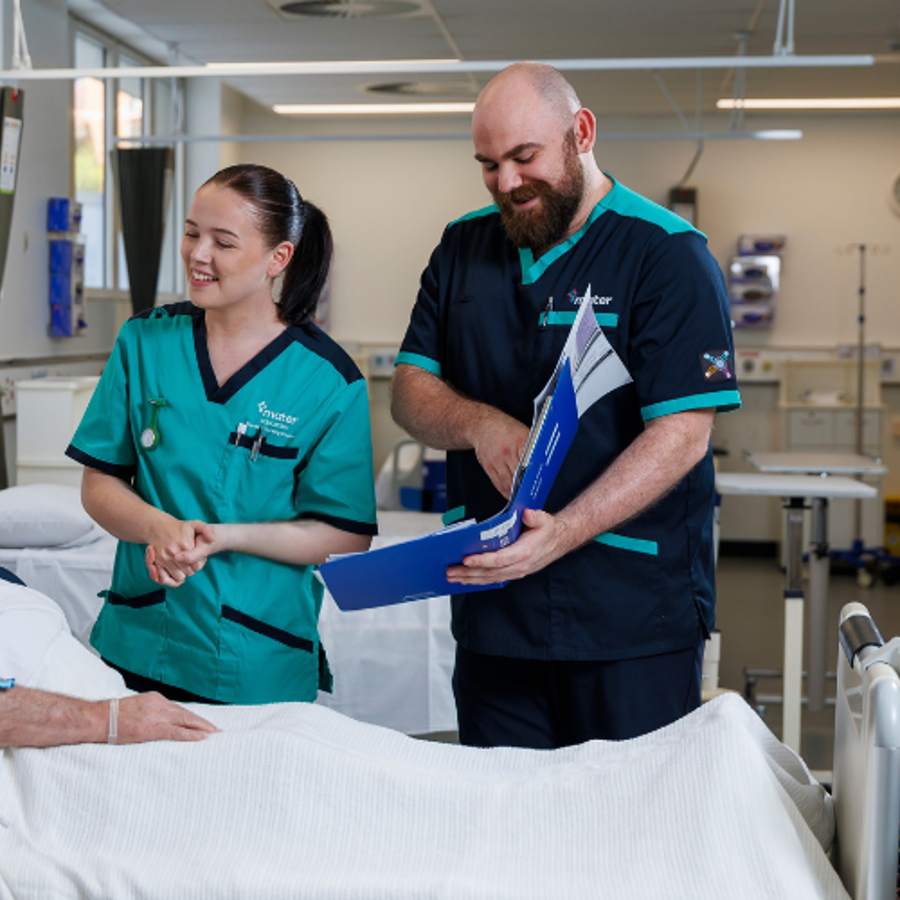
Placement
Mater Education has a dedicated placement team who will make arrangements for your mandatory placement as part of this program. You will undertake 400 hours of placement in specialties including:
- acute medical
- acute surgical
- aged care
- rehabilitation
- orthopaedics
- oncology
- perioperative
- maternity
- community and at home care services.

Graduate pathways
Graduate employment
You may choose to apply for the Mater Enrolled Nurses Graduate Program, only offered to students who have obtained a Diploma of Nursing with Mater Education.
University
Mater Education and the Australian Catholic University (ACU) School of Nursing, Midwifery and Paramedicine have an agreement allowing 10 Mater Education Diploma of Nursing graduates to be accepted by direct entry into the ACU Bachelor of Nursing per year to study to become a Registered Nurse.
-
Mater Education's Diploma of Nursing aims to develop your ability to assess, plan, implement, evaluate and apply critical-thinking skills. You’ll then apply these to provide quality patient-centred nursing care for patients/clients with varying healthcare requirements as a beginner-level enrolled nurse.
The curriculum integrates all core competencies of the Nursing and Midwifery Board of Australia (NMBA) Enrolled Nurse Standards for Practice. The program ensures the central focus is on enrolled nursing practice and providing competent, safe, patient-centred care.
Objectives/outcomes
The major goal of Mater Education’s Diploma of Nursing is to have each student demonstrate a satisfactory level of knowledge, skills, attitude, communication and safety in all units of competency. As a graduate you will be expected to be clinically competent and ready to function as beginning enrolled nurses based on the Nursing and Midwifery Board of Australia (NMBA) Enrolled Nurse Standards for Practice.
Learning philosophy
Mater Education recognises that adult students are individuals and so adopts a learner-centred focus using a variety of teaching methods to meet their learning needs. These include:
- problem-based learning tutorials (PBL)
- lectures
- online learning modules
- videos
- simulation
- high-quality professional experience placements.
The diagram shows how our evidence-based curriculum supports the students’ transition, both educationally and clinically. Our blended delivery methods promote critical thinking and support professional, multidisciplinary communication. What follows is a smooth transition from the learner-centred educational focus to the patient-centred care delivery through simulation and workplace experience placement.
Conceptual framework
Mater Education's Diploma of Nursing program’s conceptual framework is centred on the enrolled nursing professional and eight themes that support professional practice. An emphasis on knowledge, skills, attitudes, and professional and ethical practice as essential elements for enrolled nursing practice binds these themes together. The themes incorporate the three domains of the Nursing and Midwifery Board of Australia’s (NMBA) Enrolled Nursing Standards for Practice:
- professional and collaborative practice,
- provision of care, and
- reflective and analytical practice.
By emphasising knowledge (capabilities), skills, attitudes, and professional and ethical practice as essential elements for enrolled nursing practice, these themes are bound together.
The focus and themes of the conceptual framework align with Mater's teaching and learning strategy, which is based on a robust and systematic approach to transforming work-based cultures to deliver safe, high-quality patient care.
The conceptual framework guides faculty, students, advisors, and academic staff in designing and implementing any component of the Diploma of Nursing curriculum, including student and program evaluation.
Mater puts the patient at the centre of everything we do and provides an environment receptive to their perceptions of their care. Mater Education's curriculum has been designed to incorporate all of the above, based on this conceptual framework.
-
All students must hold or obtain HLTAID009 Cardiopulmonary resuscitation by the beginning of term two, semester one. All enrolled students must keep HLTAID009 Provide Cardiopulmonary Resuscitation component current for the duration of the program.
HLT54121 Diploma of Nursing is comprised of 20 core units and five elective units.
Core units
Semester One
HLTAAP002 Confirm physical health status
This unit describes the skills and knowledge required to obtain and interpret information about client health status and to check a client’s physical health. It requires a detailed knowledge of anatomy and physiology.HLTAAP003 Analyse and respond to client health information
This unit of competency describes the skills and knowledge required to analyse client health information and then to plan appropriate health services within scope of own role. It requires an in-depth knowledge of anatomy and physiology.HLTINF006 - Apply basic principles and practices of infection prevention and control
This unit describes the performance outcomes, skills and knowledge required to apply basic infection prevention and control principles in work settings including implementing standard and transmission-based precautions and responding to risks.HLTWHS002 Follow safe work practices for direct client care
This unit describes the skills and knowledge required for a worker to participate in safe work practices to ensure their own health and safety, and that of others in work environments that involve caring directly for clients. It has a focus on maintaining safety of the worker, the people being supported and other community membersCHCDIV002 Promote Aboriginal and/or Torres Strait Islander cultural safety
The unit describes the skills and knowledge required to identify Aboriginal and/or Torres Strait Islander cultural safety issues in the workplace, model cultural safety in own work practice, and develop strategies to enhance cultural safety.HLTENN037 Perform clinical assessment and contribute to planning nursing care
This unit of competency describes the performance outcomes, skills and knowledge required, within the scope of practice, to perform preliminary and ongoing physical health assessments of all body systems, gathering data that contributes to an individualised health plan of care.HLTENN038 Implement, monitor and evaluate nursing care plans
This unit describes the performance outcomes, skills and knowledge required to implement nursing care as outlined in a person’s nursing care plan, evaluate outcomes of care provided, record and report progress, and respond to emergency situations.HLTENN036 Apply communication skills in nursing practice
This unit describes the performance outcomes, skills and knowledge required to communicate effectively with people, families and carers, and with other health care professionals, in health care settings.HLTENN045 Implement and monitor care of the older person
This unit describes the performance outcomes, skills and knowledge required to perform nursing interventions to support the social and emotional wellbeing and nursing care needs of the older person in care.HLTENN041 Apply legal and ethical parameters to nursing practice
This unit describes the performance outcomes, skills and knowledge required to work within legal and ethical parameters in professional nursing practice, including supporting rights and meeting duty of care requirements.Semester Two
HLTENN035 Practise nursing within the Australian healthcare system
This unit describes the performance outcomes, skills and knowledge required to practise as a nursing professional within the Australian healthcare system, providing healthcare across the lifespan of people in health and community care services and environments.CHCDIV001 Work with diverse people
This unit describes the skills and knowledge required to work respectfully with people from diverse social and cultural groups and situations, including Aboriginal and/or Torres Strait Islander people.HLTENN040 Administer and monitor medicines and intravenous therapy
This unit describes the performance outcomes, skills and knowledge required to administer and monitor medicine and intravenous (IV) therapy including calculating dosage requirements, reading and applying written instructions from an authorised prescriber, assessing the person for medicine effectiveness and side effects, and responding to an allergic pharmacological reaction.HLTENN043 Implement and monitor care for a person with acute health conditions
This unit describes the performance outcomes, skills and knowledge required to meet the assessed health care needs of people with acute health conditions.HLTENN044 Implement and monitor care for a person with chronic health conditions
This unit describes the performance outcomes, skills and knowledge required to meet the assessed health care needs of people with chronic health conditions.Semester Three
CHCPRP003 Reflect on and improve own professional practice
This unit describes the skills and knowledge required to evaluate and enhance own practice through a process of reflection and ongoing professional development.HLTENN047 Apply nursing practice in the primary health care setting
This unit describes the performance outcomes, skills and knowledge required to work in a primary health care environment including community-based, educational, occupational and informal settings, and in general practice. Primary health care involves a person-centred and comprehensive approach to health care. It is made accessible to people by being located as close as possible to where they live and supporting their full participation in the spirit of self-reliance and self-determination.HLTENN039 Apply principles of wound management
This unit describes the performance outcomes, skills and knowledge required to apply contemporary wound management principles to the care of persons with various types of wounds. It involves working with the registered nurse within the multidisciplinary health care team to contribute to the assessment, treatment and ongoing management of wounds.HLTENN068 Provide end of life care and a palliative approach in nursing practice
This unit describes the performance outcomes, skills and knowledge required to provide a person-centred approach to palliative and end of life care in primary health care, hospitals, hospices, home and community care, and long-term care facilities.HLTENN042 Implement and monitor care for a person with mental health conditions
This unit describes the performance outcomes, skills and knowledge required to contribute to the nursing care and treatment of a person with a mental health condition.Compulsory elective units
All students need to complete the following two compulsory elective units:
HLTENN057 Contribute to the nursing care of a person with diabetes
This unit describes the performance outcomes, skills and knowledge required to provide nursing care to a person with diabetes including assessing needs, planning and implementing nursing interventions, evaluating outcomes, and educating the person on the condition and available resources.CHCPOL003 Research and apply evidence to practice
This unit describes the skills and knowledge required to establish the information need, gather information and critically analyse the information for relevance to own work.Elective units (subject to availability)
Students can choose three electives from the following areas:
CHCCCS037 Visit client residence (not available in Townsville)
This unit describes the skills and knowledge required to make visits to clients to assess needs and/or deliver services in their place of residence. This unit applies to workers who are required to deliver services to people in their home or in any temporary or permanent community residence. Work may be directed under regular (direct, indirect or remote) supervision.HLTENN046 Contribute to maternal and infant health care
This unit describes the performance outcomes, skills and knowledge required to provide care to mother and newborn infant in postnatal, neonatal, child and family health care and paediatric health care settings.HLTWHS006 Manage personal stressors in the work environment
This unit describes the skills and knowledge required to maintain health and wellbeing by preventing and managing personal stress. This unit applies to work in a range of health and community services settings, in particular work roles that operate in high stress situations and circumstances.BSBPEF402 Develop personal work priorities
This unit describes the skills and knowledge required to monitor and obtain feedback on own work performance and access learning opportunities for professional development.Note:
- While we endeavour to accommodate students’ elective preferences, we cannot guarantee that students will receive their first preference, due to the demand and availability of some electives.
- Days of commitment may change each semester.
- Electives are subject to review and may change. Any changes will be communicated to students.
- Should you leave the course before you complete it, you’ll receive a Statement of Attainment for any units of competency you’ve successfully completed and where fees have been paid in full.
-
After successfully completing Mater Education’s Diploma of Nursing program, a Nursing and Midwifery Board of Australia (National Board) approved program of study, you can apply to AHPRA for national registration to practice as an enrolled nurse.
Successful completion of Mater Education's Diploma of Nursing program does not guarantee registration as an Enrolled Nurse with AHPRA. Graduates must also meet AHPRA's Enrolled Nurse Registration Standards.
We recommend students apply for registration four to six weeks before completing the course.
Please note, your tuition fees must be up to date to receive your Diploma qualification and register with AHPRA. If receipt of your qualification is delayed, you may need to pay additional registration fees to AHPRA.
If you have any questions about enrolled nurse registration, or would like more information, use the AHPRA's Online Enquiry Form or call them on 1300 419 495.
-
Withdrawal from a program
Students who have enrolled in a program of study are required to contact us to advise their intention to withdraw from the program.
Students will not receive acknowledgement of their study e.g. statement of attainment unless all fees have been paid in full and all Mater resources provided to the student are returned in good order.
Mater Education will repay to any Mater Education student who is, or would be, enrolled in a VET unit of study, any upfront payment of VET tuition fees if the student withdraws from that unit of study on or before the relevant census date.
Students who have requested VET Student Loan assistance who remain enrolled after the published census date will incur a VET Student Loan debt. Where a student withdraws from a VET unit of study after the relevant census date and is seeking a refund, please refer to Mater Education's Refund of Tuition Fees after the Census Day procedure and Re-Crediting HELP Balances Policy.
Cancellation of enrolment
Mater Education can cancel a student’s enrolment where:
- Tuition fees remain outstanding after the student has been suspended for 28 days.
- a student has withdrawn from the course and has outstanding fees.
- a student, with outstanding fees, in the middle of a semester or in the final semester of studies haven’t responded to the three reminders to pay outstanding fees.
- a student has outstanding fees from a completed semester and hasn’t responded to three reminders
- there are ongoing behavioural concerns
- non–achievement of learning plans
- in the event that a student enrols on the basis that some or all of the VET tuition fees will be covered by a VET Student Loan, if the student does not submit an eCAF (including eCAF progressions) on or before the census day (or is not approved for a VET Student Loan) and does not voluntarily pay for the part of the course upfront.
For the purposes of VET Student Loans, cancellation of a student’s enrolment which occurs after a census day provides for the student to have at least 28 days to initiate grievance procedures before the cancellation takes final effect.
Students can access the Complaints and Appeals procedure to initiate an appeal against a decision to cancel enrolment.
Refund policies
Wanting to know more?

Mater Private Hospital Townsville
21-37 Fulham Road, Pimlico Qld 4812
Watch our Townsville tour videoRelated courses
-
 Springfield
Springfield
Brisbane15 weeks plus placementCertificate III in Pathology Collection
Our Certificate III in Pathology Collection course will arm you with the skills, knowledge and practical experience you need to become a pathology collector.
-
 Brisbane15 weeks plus placement
Brisbane15 weeks plus placementCertificate III in Health Services Assistance
Gain the knowledge and skills you need to help health professionals take care of clients in various roles with our Certificate III in Health Services Assistance.



